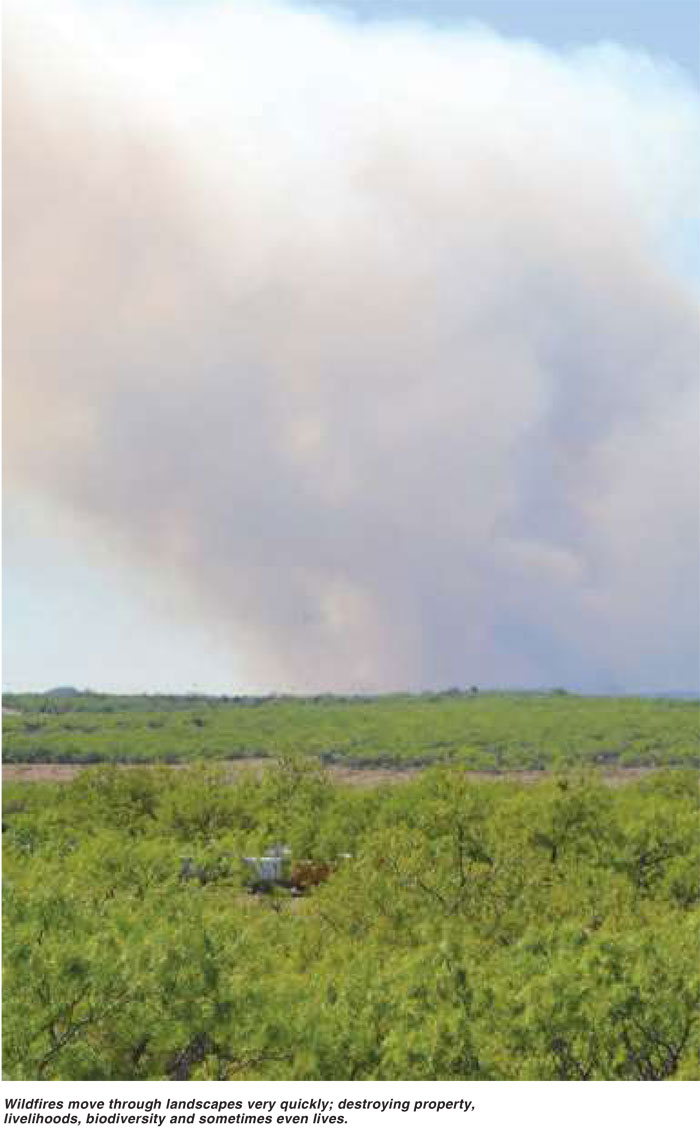March 2017
The National Veld and Forest Fire Act 101 of 1998 prescribe the following statutory landowner requirements:
Responsibilities of people in control of land
All owners on whose land a fire may start or burn or from whose land it may spread must:
 Fire prevention through firebreaks
Fire prevention through firebreaks
Some natural (or human made) veld conditions, e.g. recently burned veld (younger
than four years), a natural vlei, a dam or river, old farmlands and floodplains can beregarded as a natural firebreak. The width of firebreaks depends onwhere it is to be made:
Please check with your local municipality or fire brigade to confirm the rules and regulations for your area.
Have the necessary equipment, protective clothing and trained personnel for extinguishing fires as are prescribed in the regulations. If a fire should break out, take all reasonable steps to alert the neighbours and notify the relevant fire brigade, fire protection officer of the local Fire Protection Association (FPA), if there is one. Do everything in your power to safely stop the fire from spreading. If the owner of the land is absent, he or she must appoint a responsible person on the land or nearby his or her land to take the needed precautions if a fire might occur, or assist to do so.
However, you cannot always effectively prevent, manage and fight fires on your own. You may want to consider becoming a member of your local Fire Protection Association (FPA). FPAs help land users to predict, prevent, manage and extinguish wildfires. Wildfires move through landscapes very quickly; destroying property, livelihoods, biodiversity and sometimes even lives.
Your local FPA can help land owners meet their legal requirements, provide training to land owners and their staff and guide them through fire management planning and also assist with firebreak preparation. You will be assisted to become legally compliant, as per national regulations. Members are offered training in fire fighting, fire management and fire prevention. Membership is voluntary and there is a nominal joining fee.
There are FPAs across South Africa. If no FPA exists in your area, approach your district municipality or farmers’ union to assist.
For more information on The National Veld and Forest Fire Act 101 of 1998 please visit http://www.daff.gov.za.
At home
To-do list
Article submitted by Ingrid Marti, Freelance Journalist. For more information, send an email to ingridmarti7@gmail.com.
Publication: March 2017
Section: Pula/Imvula